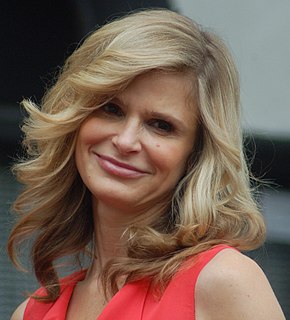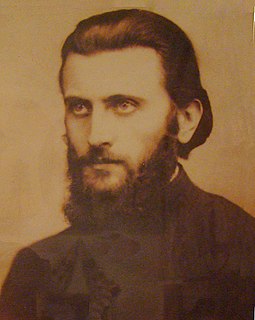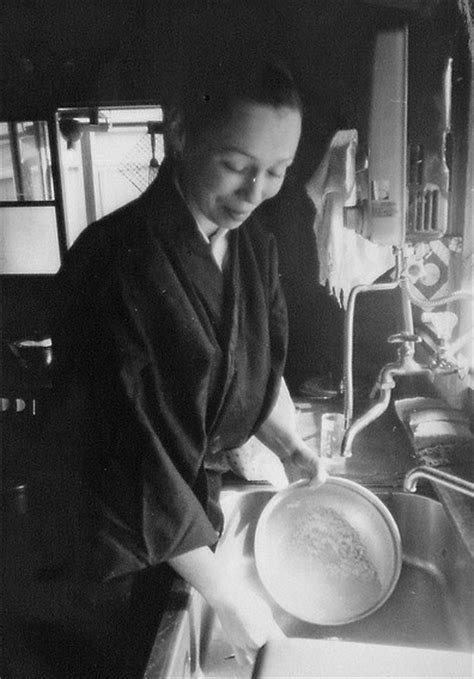A Quote by Nhat Hanh
The way we live our daily lives is what most effects the situation of the world. If we can change our daily lives, then we can change our governments and can change the world. Our president and governments are us. They reflect our lifestyle and our way of thinking. The way we hold a cup of tea, pick up the newspaper or even use toilet paper are directly related to peace.
Related Quotes
Many of us incorrectly assume that a spiritual life begins when we change what we normally do in our daily life. We feel we must change our job, our living situation, our relationship, our address, our diet, or our clothes before we can truly begin a spiritual practice. And yet it is not the act but the awareness, the vitality, and the kindness we bring to our work that allows it to become sacred.
Jesus does not respond to our worry-filled way of living by saying that we should not be so busy with worldly affairs. He does not try to pull us away from the many events, activities, and people that make up our lives. . . . He asks us to shift the point of gravity, to relocate the center of our attention, to change our priorities. Jesus does not speak about a change of activities, a change in contacts, or even a change of pace. He speaks about a change of heart.
Every few decades, we have an opportunity to make a drastic change to the way we live our lives. We get a chance to design the building blocks of our daily routines, the infrastructure that will support and accompany us for the years to come - from the trains and trams we ride, the offices we work in, to the energy that powers our homes.
It is change, continuing change, inevitable change, that is the dominant factor in society today. No sensible decision can be made any longer without taking into account not only the world as it is, but the world as it will be. This, in turn, means that our statesmen, our businessmen, our every man must take on a science fictional way of thinking.
When we feel we are powerless our ego most wants to change the things in our world. As we realize we have the power to change our reality the maturity that comes with that understanding changes us, and we find ourselves in acceptance of what is with less desire of feeling our need to change the world around us.
... poetry is not a luxury. It is a vital necessity of our existence. It forms the quality of the light within which we predicate our hopes and dreams toward survival and change, first made into language, then into idea, then into more tangible action. Poetry is the way we help give name to the nameless so it can be thought. The farthest horizons of our hopes and fears are cobbled by our poems, carved from the rock experiences of our daily lives.
We must be ready to allow ourselves to be interrupted by God, who will thwart our plans and frustrate our ways time and again, even daily, by sending people across our path with their demands and requests. We can, then, pass them by, preoccupied with our important daily tasks, just as the priest-perhaps reading the Bible-passed by the man who had fallen among robbers. When we do that, we pass by the visible sign of the Cross raised in our lives to show us that God’s way, and not our own, is what counts.
We throw our parties; we abandon our families to live alone in Canada; we struggle to write books that do not change the world, despite our gifts and our unstinting efforts, our most extravagant hopes. We live our lives, do whatever we do, and then we sleep--it's as simple and ordinary as that. A few jump out of windows or drown themselves or take pills; more die by accident; and most of us, the vast majority, are slowly devoured by some disease or, if we're very fortunate, by time itself.
We will continue our journey to our destination of peace and education. No one can stop us. We will speak up for our rights and we will bring change to our voice. We believe in the power and the strength of our words. Our words can change the whole world because we are all together, united for the cause of education. And if we want to achieve our goal, then let us empower ourselves with the weapon of knowledge and let us shield ourselves with unity and togetherness.
But knowing that the world had come full circle to our Depression story didn't change the way we worked on it, or encourage us to change our thrust. I want people to be able to pick up this book in the future no matter what's going on in the world, and appreciate it on its own merits, not for any perceived winks at the headlines.
We don't want to give the controls to someone else; we want those reins ourselves. We want to get our way. And we get upset when things don't work out. . . . When we try to control someone else or events beyond the scope of our power, we lose. When we learn to discern the difference between what we can change and what we can't, we usually have an easier time expressing our power in our lives. Because we're not wasting all our energy using our power to change things we can't, we have a lot of energy left over to live our lives.
Global climate change is real and we have a limited time to change our behavior or live with the consequences. We can all help by making small changes in our lives to letting our voice be heard by our governing bodies. As has always been the case in this country, if the people demand change, it will come.




























